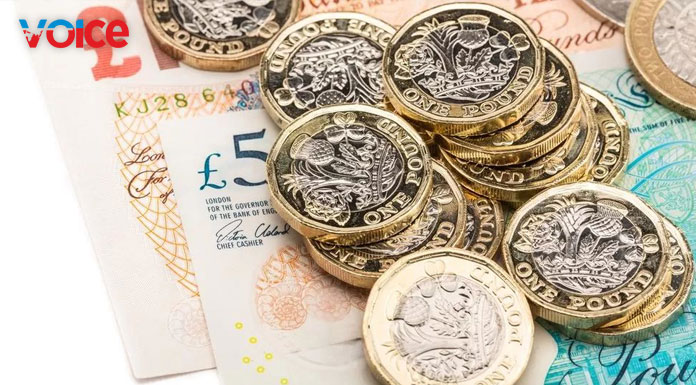The pound fell against the dollar on Friday morning as new figures showed a gloomy picture for the UK economy.
Sterling dropped 1% against the dollar to $1.11, after rallying on Thursday as Prime Minister Liz Truss resigned.
It came as official figures showed government borrowing rose to its second highest September on record.
Meanwhile, people are shopping less than they did before the coronavirus pandemic, according to figures from the Office For National Statistics (ONS).
Retail sales volumes fell more than expected by 1.4% last month, continuing their slide from August, the ONS said.
The pound’s latest slide comes after a period of volatile trading for the currency.
It plunged to a record low against the dollar last month, while government borrowing costs rose sharply in the aftermath of the mini-budget. Investors were spooked after the government promised huge tax cuts without saying how it would pay for them.
fall in the value of the pound increases the price of goods and services imported into the UK from overseas – because when the pound is weak against the dollar or euro, for example, it costs more for companies in the UK to buy things such as food, raw materials or parts from abroad.
A weaker pound can push rising costs higher as well if companies choose to pass on higher prices to customers. For people planning a trip overseas, changes in the pound affect how far their money will go abroad.
Shoppers buying less
“Consumers are now buying less than before the pandemic,” said Darren Morgan, from the Office for National Statistics (ONS) which released the figures, said.
He added: “Retailers told us that the fall in September was partly because many stores were closed for the Queen’s funeral, but also because of continued price pressures leading consumers to be careful about spending.”
The cost of living crisis continues to squeeze household budgets, with prices rising faster than average wages.
Inflation – the rate at which UK prices rise – surged to 10.1% last month and is expected to climb further.
Mr Morgan, director of economic statistics at the ONS, said all types of shops saw sales drop with food stores particularly hard hit.
Energy bills
The UK is borrowing billions of pounds to limit energy bill rises for households and businesses.
Borrowing – the difference between spending and tax income – was £20bn last month, up £2.2bn from a year earlier, the Office for National Statistics (ONS) said.
It is the second highest September borrowing since monthly records began in 1993, the ONS said.
The figure is lower than in September 2020, at the height of the coronavirus pandemic, when the government was borrowing to fund schemes such as furlough, it said.
(Source BBC)











